
Abd Allah ibn Abi Quhafa, commonly known by his kunyaAbu Bakr, was the first caliph, ruling from 632 until his death in 634. As a senior companion of Muhammad and, through his daughter Aisha, also his father-in-law, Abu Bakr is referred to with the honorific title al-Siddiq by Sunni Muslims.
The Quraysh were a grouping of Arab clans that historically inhabited and controlled the city of Mecca and its Kaaba. The Islamic prophet Muhammad was born into the Quraysh clan. By 600 CE, the tribe were affluent merchants who dominated commerce between the Indian Ocean and East Africa on one side and the Mediterranean on the other. They organized caravans that traveled to Gaza and Damascus in the summer and to Yemen in the winter. On those routes, they were also engaged in mining and other enterprises. They were known for their hilm, or "absence of hotheadedness," because, despite their rivalries, they put commercial interests and unity first.

The ʿām al-fīl is the name in Islamic history for the year approximately equating to 570–571 CE. According to Islamic resources, it was in this year that Muhammad was born. The name is derived from an event said to have occurred at Mecca: Abraha, the Abyssinian, Christian king of Himyarite marched upon the Ka‘bah in Mecca with a large army, which included war elephants, intending to demolish it. However, the lead elephant, known as 'Mahmud', is said to have stopped at the boundary around Mecca, and refused to enter. It has been mentioned in the Quran that the army was destroyed by small birds that carried pebbles that destroyed the entire army and Abraha perished. Surah Fil in Quran illustrates the incident clearly. The year came to be known as the Year of the Elephant, beginning a trend for reckoning the years in the Arabian Peninsula. This reckoning was used until it was replaced with the Islamic calendar during the times of ‘Umar.

The Banu Qurayza were a Jewish tribe which lived in northern Arabia, at the oasis of Yathrib. They were one of the three major Jewish tribes of the city, along with the Banu Qaynuqa and Banu Nadir. Jewish tribes reportedly arrived in Hijaz in the wake of the Jewish–Roman wars and introduced agriculture, putting them in a culturally, economically and politically dominant position. However, in the 5th century, the Banu Aws and the Banu Khazraj, two Arab tribes that had arrived from Yemen, gained dominance. When these two tribes became embroiled in conflict with each other, the Jewish tribes, now clients or allies of the Arabs, fought on different sides, the Qurayza siding with the Aws.
Fatima bint Asad was the wife of Abu Talib and the mother of their son Ali ibn Abi Talib.

Muhammad Asad was an Austro-Hungarian-born Muslim polymath. A Jew, he worked as a journalist, traveler, writer, political theorist, and diplomat.
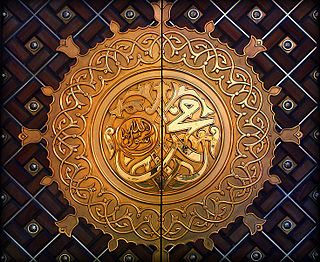
In Islam, Muḥammad is venerated as the Seal of the Prophets and earthly manifestation of primordial divine light (Nūr), who transmitted the eternal word of God (Qur'ān) from the angel Gabriel (Jabrāʾīl) to humans and jinn. Muslims believe that the Quran, the central religious text of Islam, was revealed to Muhammad by God, and that Muhammad was sent to guide people to Islam, which is believed not to be a separate religion, but the unaltered original faith of mankind (fiṭrah), and believed to have been shared by previous prophets including Adam, Abraham, Moses, and Jesus. The religious, social, and political tenets that Muhammad established with the Quran became the foundation of Islam and the Muslim world.
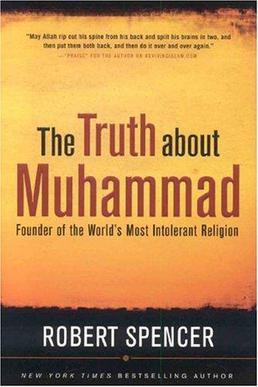
The Truth About Muhammad: Founder of the World's Most Intolerant Religion is a biography by American anti-Muslim author Robert Spencer about the Islamic prophet Muhammad. Written from a critical perspective towards its subject, this book examines the life of Muhammad in ten chapters based on the sources provided by his early biographers, together with the Quran and the hadith, while also challenging their historical authenticity.

This Law of Ours and Other Essays is a book written by Muhammad Asad, first published by Dar al-Andalus, Gibraltar in 1987. The book is a collection of Asad's writings, lectures and radio broadcasts—some written as far back as the 1940s—which aims to clarify some of the confusion in the Muslim Ummah about the scope and practical implications of Islamic law.

The Message of The Qur'an is an English translation and interpretation of the 1924 Cairo edition of the Qur'an by Muhammad Asad, an Austrian Jew who converted to Islam. It is considered one of the most influential Quranic translations of the modern age. The book was first published in Gibraltar in 1980, and has since been translated into several other languages.
1992 was a year mixed with euphoria and tragedy for Pakistan. While Pakistan won the finals of the Cricket World Cup, thousands died in the flooding that occurred in the northern regions of Pakistan as a result of torrential rains swelling the Indus river. The Nawaz government inaugurated a few projects in the province of Punjab towards the betterment of road networks and ordered a military operation in the province of Sindh to counter the growing language riots and ethnic tension.
Abu Talib ibn Abd al-Muttalib was the leader of Banu Hashim, a clan of the Qurayshi tribe of Mecca in the Hejazi region of the Arabian Peninsula. He being the brother of Abdullah, the father of the Islamic Prophet Muhammad, was his uncle and father of Ali. After the death of his father Abd al-Muttalib ibn Hashim ibn Abd Manaf, he inherited this position as tribal chieftain, and the offices of Siqaya and Rifada. He was well-respected in Mecca.
The Battle of Hamra al-Assad, was a Ghazawat, a battle in which Muhammad took part. It occurred in AD 625 after the Battle of Uhud, when the Quraysh were returning to Mecca.
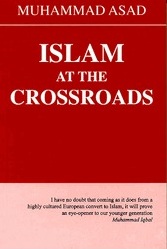
Islam at the Crossroads is a book written by Muhammad Asad. The book originally published in Delhi and Lahore in 1934, and was later reprinted by Dar Al-Andulas in 1982 with an additional note by the author.
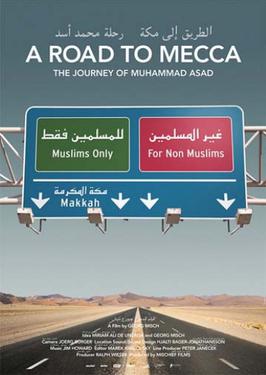
A Road to Mecca – The Journey of Muhammad Asad, also known as A Road to Mecca, is a 2008 documentary by Austrian filmmaker Georg Misch. The documentary traces the path of Muslim scholar and political theorist Muhammad Asad, which led to his conversion to Islam.
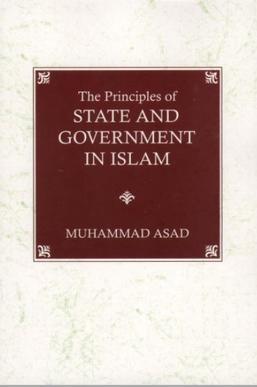
The Principles of State and Government in Islam is a book written by Muhammad Asad. It was originally published in 1961 by University of California Press, and a revised edition was published in 1980 by Islamic Book Trust.
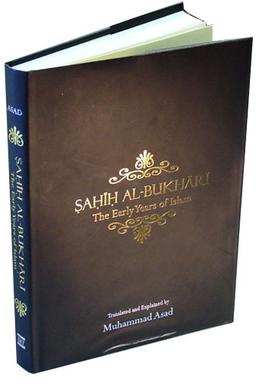
Sahih Al-Bukhari: The Early Years of Islam is the translation and explanation of Sahih al-Bukhari by Muhammad Asad.
Laylat al-mabit refers to the night in 622 CE in which the Islamic prophet Muhammad fled Mecca for Yathrib, apparently to foil an assassination plan. His escape from Mecca followed the exodus of his persecuted followers to the safe haven of Yathrib, a city that was later renamed Medina in his honor. Laylat al-mabit is often associated in Islamic literature with the reports that Muhammad's cousin Ali ibn Abi Talib risked his life to facilitate Muhammad's safe escape from Mecca.

The Arab Awakening is a 1938 book by George Antonius, published in London by Hamish Hamilton. It is viewed as the foundational textbook of the history of modern Arab nationalism. According to Martin Kramer, The Arab Awakening "became the preferred textbook for successive generations of British and American historians and their students".

Ahmad Zayni Dahlan (1816–1886) was the Grand Mufti of Mecca between 1871 and his death. He also held the position of Shaykh al-Islam in the Hejaz and Imam al-Haramayn. Theologically and juridically, he followed the Shafi'i school of thought.














